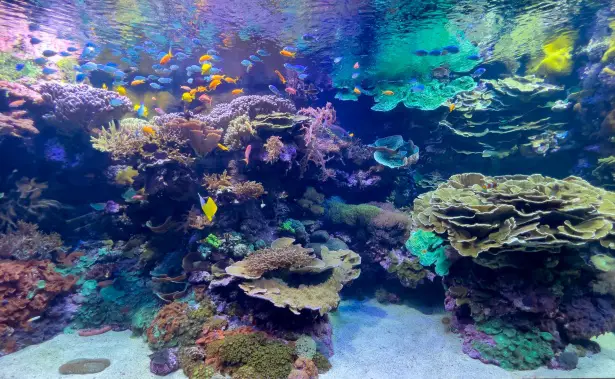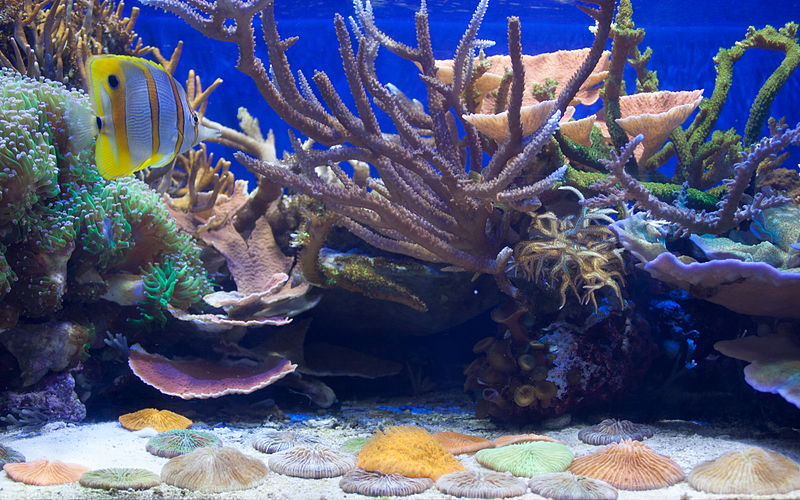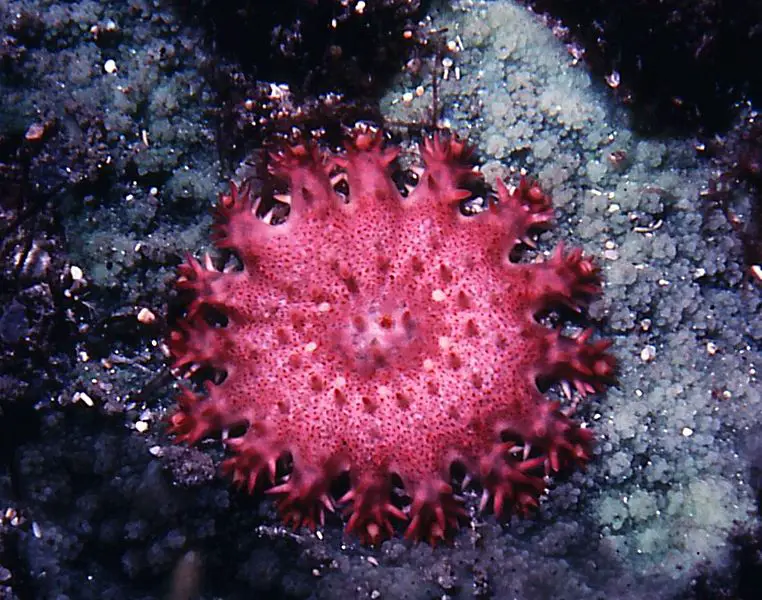Introduction
Understanding your corals if you have a saltwater aquarium is a fascinating and ongoing process that confuses many individuals. Corals are strange and unique organisms, and if you’ve ever wondered whether your corals can move, you aren’t alone.
Technically speaking, corals are not capable of movement, although they will sway with the currents of the water. Hard corals lay down tough skeletal structures using calcium carbonate, and this means that they are fixed in one place, except by building more structures in a new direction. Soft corals are slightly more capable of movement, although they are also anchored. Neither can move in the traditional sense of the word.
In this article, we’re going to explore how corals move and whether reefs are capable of relocating themselves when their conditions are unsuitable. Corals are extraordinary and there’s certainly more to them than meets the eye – so let’s start unpicking this.
Can Soft Corals Move?
Like other corals, soft corals do not really move, but they can gradually shift their position by expanding and contracting their base. The base of the coral is attached to a rock or another hard surface (such as the excretion of a hard coral) and this keeps it anchored in the water and stops it from being swept away by the currents.
However, if a coral’s position is not ideal – such as the light or currents being too strong or too weak – the coral might start to expand its base in a different direction. This allows the coral to gradually shift its position.
It can excrete toxins that will clear a path in front of it, leaving destruction in its wake, and eventually, it will be in a new spot. This takes a very long time and is not considered movement by many people.
How Fast Can Coral Move?
Some people count coral movement as the spreading of the polyps to new areas – and in this case, the answer is that they are only limited by the speed of the currents that carry them. This ability to move has resulted in corals expanding their ranges, but it is only movement in the same way as a plant being spread via seeds on the wind.
Corals that move by expanding and shifting their bases are very slow to move. Some can expand by as much as 6 inches per year, but these are among the very fastest corals, growing in the very best conditions.
Most corals grow at a rate of less than 1 inch per year, making any movement almost impossible to see. They are extremely slow to shift position – if they shift at all – and therefore you shouldn’t expect to see this happening in your aquarium.
If the conditions are unsuitable, it is much more likely that the coral will simply die before it has managed to relocate to a more suitable spot. Stony corals, which secrete tough exteriors, will not be able to move at all, although they can decide which direction to grow in.
Are Coral Reefs Mobile?
Coral reefs are not mobile, no. They are made up of stony structures that the coral polyps produce for their own protection, and these are fixed to the rocks or other immovable surfaces. The corals depend upon these structures to keep them safe from predators, but they are limited by them as they cannot be moved.
It might help to think of them like building a fortification out of rock. A castle cannot be moved, although new stones can be positioned in new places off the main structure. Stony corals operate in the same way, and although they can expand from the base, they are fixed in one place.
This might seem confusing, because the corals inside are capable of some movement, but they are like plants – anchored to their bases. Corals do not move from one spot once they have started to grow. Only their larvae are free to drift off in the water.
The larvae will be carried by the currents until they reach new suitable places. This is the only stage of their lives during which they are mobile. Once they have settled somewhere, they become fixed in place and will not move again.
Are Corals Immobile?
Corals are pretty immobile, yes. They are fixed in place by rigid structures or by their own strength, and once anchored, they will remain in one position throughout their lives. If torn up, the coral will almost always die.
A coral can move its tentacles to hunt for food in the water, and it can decide where to lay new calcifications and which direction to expand in, but it is not capable of relocating.
Do not depend upon a coral to situate itself in a good spot in your aquarium. It will stay where you have placed it, unless the current washes it to a new spot.
Most people choose to glue their corals down with a suitable adhesive to prevent them from getting knocked off or washed away before they have had time to anchor themselves to the rocks, but be aware that your coral will not move on its own.
If you do find a coral has moved from one part of your aquarium to another, this indicates that it has been moved by something within the tank. That might be the flow of water or it might be a fish or another creature.
Reposition it in a suitable spot and anchor it firmly in place so that it can start building itself up, feeding, and growing. A coral that is constantly being washed around will not thrive and will soon die, so don’t try to leave it unfixed.
Conclusion
Corals cannot move independently, whether they are soft or hard corals. Soft corals have slightly more capacity to shift their locations, but this will take a very long time and they have minimal control. Hard corals are anchored to their fixed structures and cannot move beyond deciding which direction to create new hard structures in.



